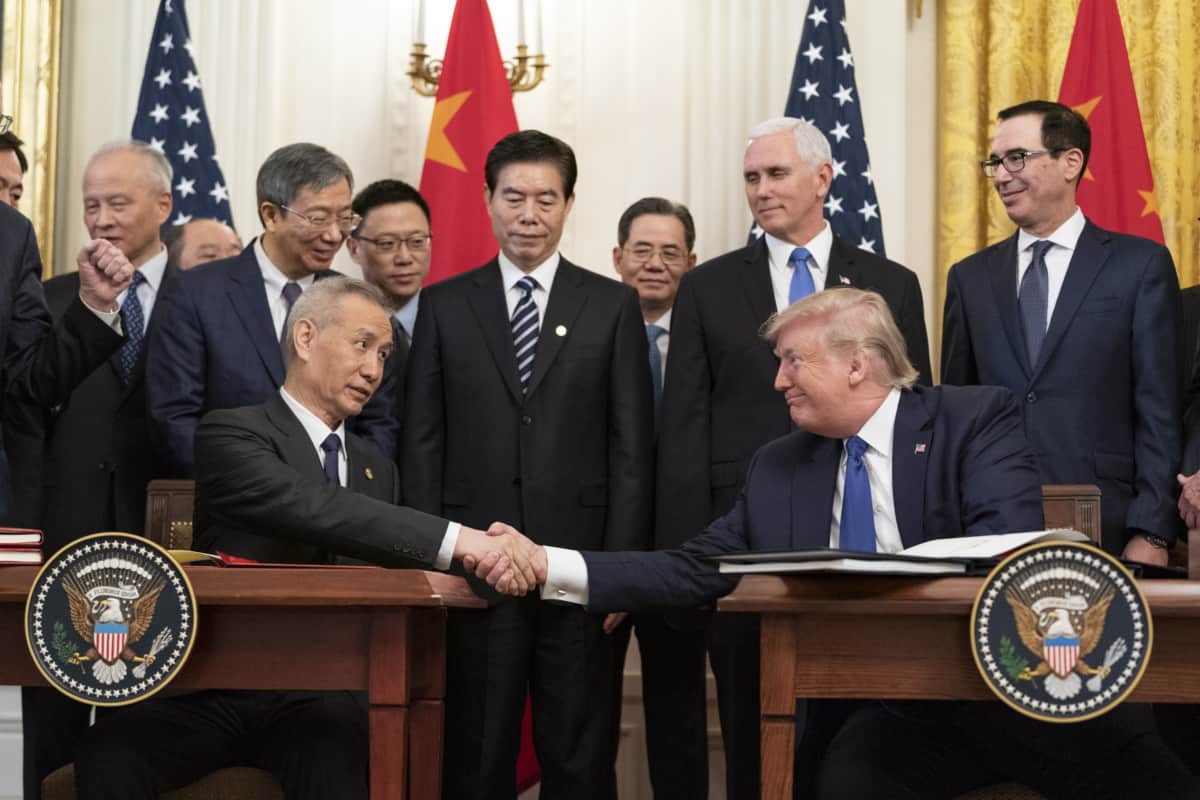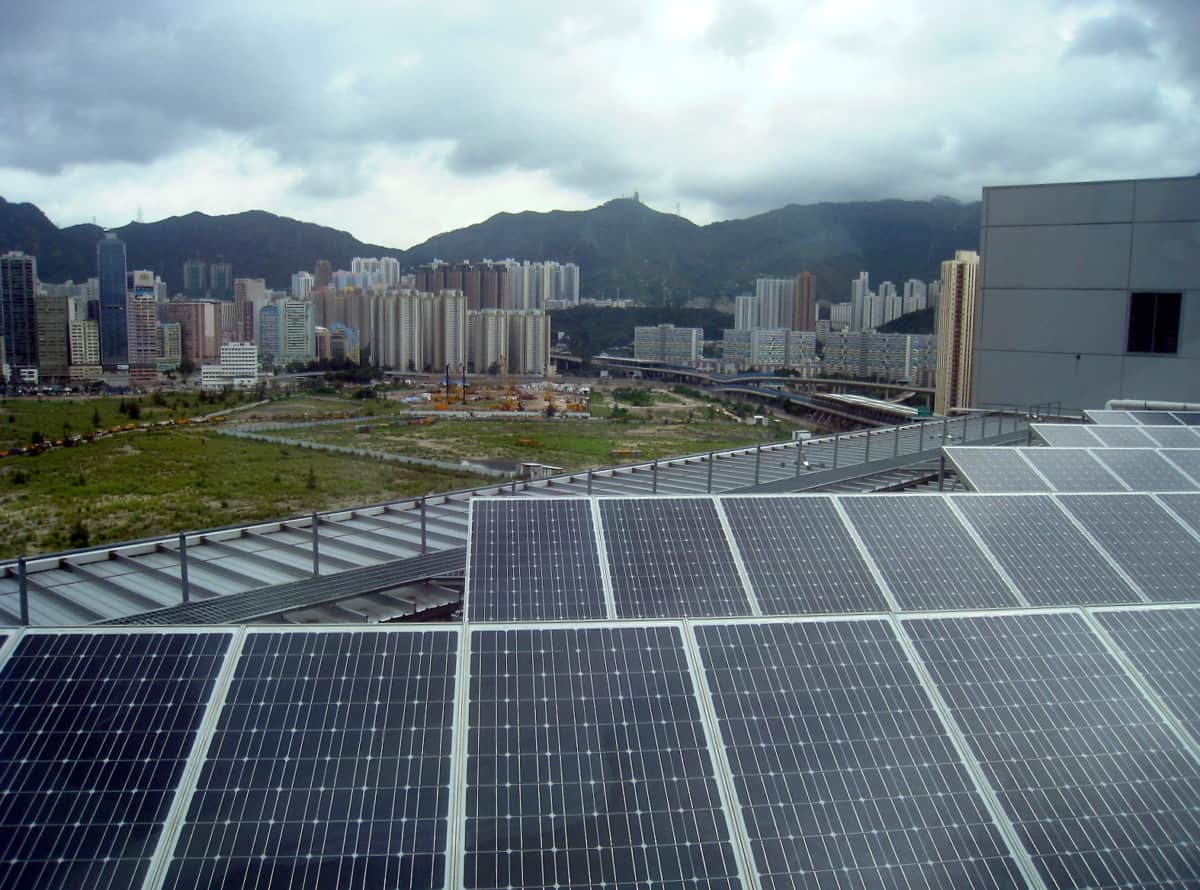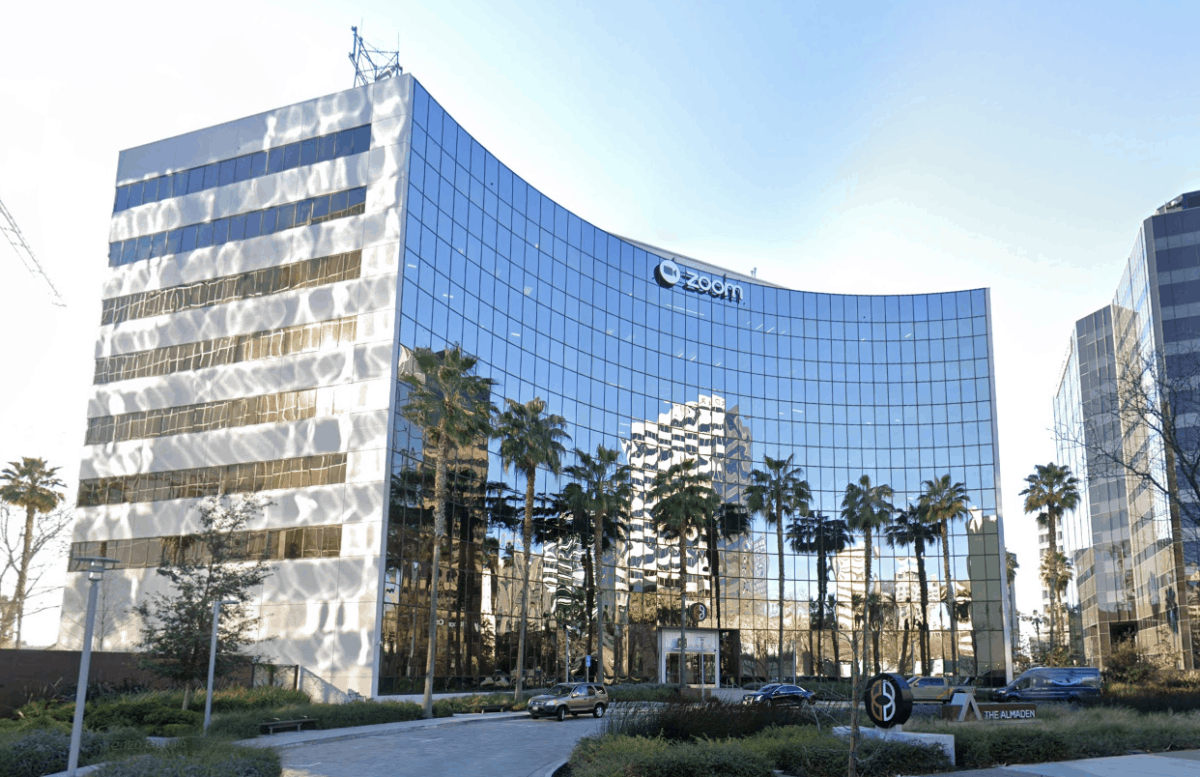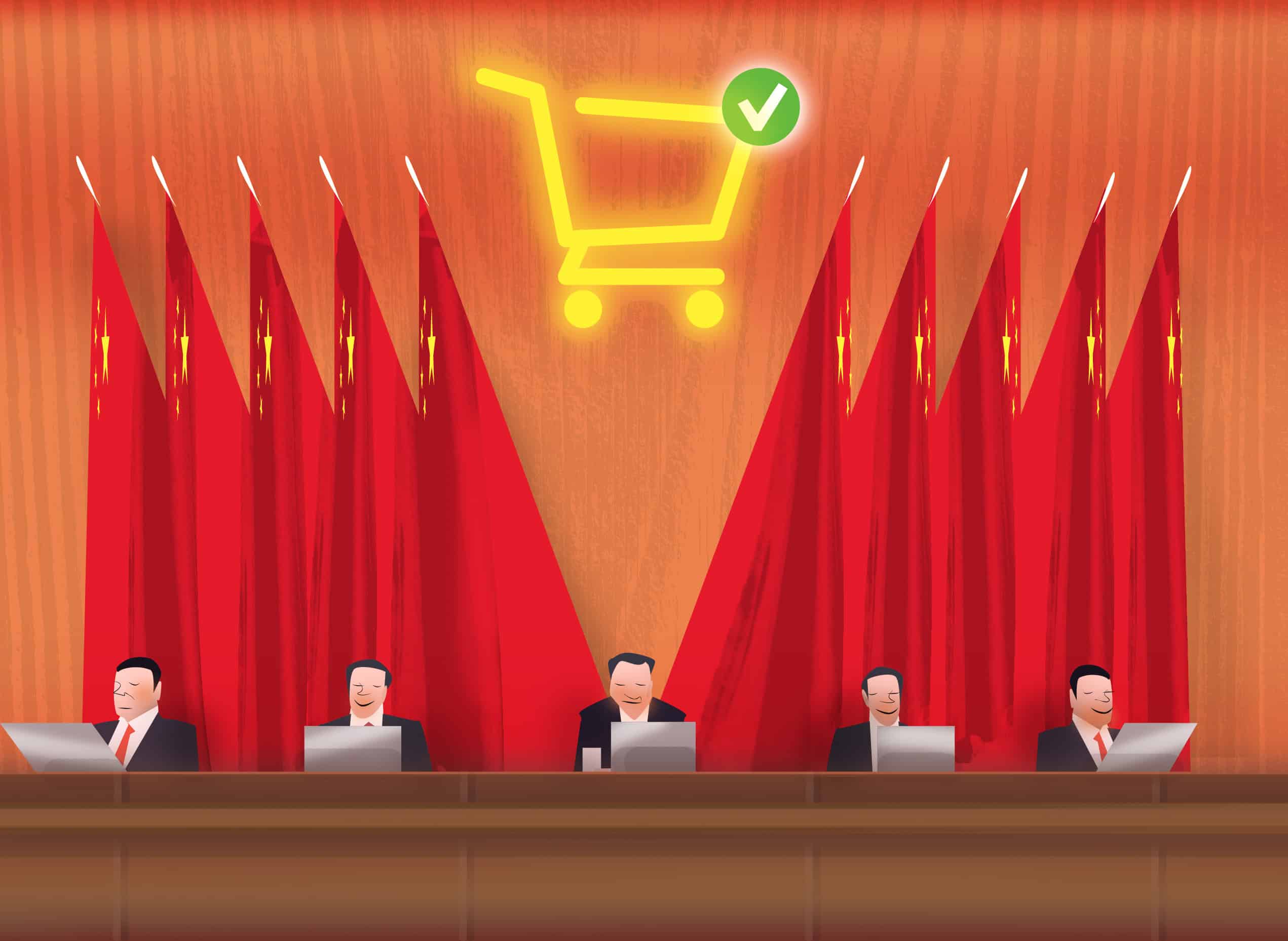- Pinduoduo, one of China’s biggest ecommerce sites, saw more than 1 billion orders of farm products from rural merchants in the first quarter, a 184 percent increase from the same period last year. — South China Morning Post
- In a survey of 1,000 gamers, one in four said their parents started playing games during the pandemic lockdown. Of those who were already playing on consoles, 95 percent said they spent more time playing than before. — Niko Partners
- There were 140 robots per 10,000 employees in China’s manufacturing industry in 2018. Singapore led the world that year with 831. China ranked 20th. — China Power
- With the country on track for its worst economic performance in the post-Mao era, China’s leaders are considering not setting a numerical target for economic growth. — Bloomberg News

Credit: Shealah Craighead for The White House, Flickr
Quote of the Week
It’s such a crazy idea that anyone who has made it should really have their fitness for office reconsidered. We view this as largely a political ploy for [Donald Trump’s] re-election and a cynical one because it would destroy the financing of the U.S. federal budget deficit.
Cliff Tan, East Asian head of global markets research at MUFG Bank, on news reports that the U.S. is considering canceling all or part of its debt owed to China. SCMP
When Is a Deal a Deal?
Back in the 1970s and 1980s, journalists covering the Lebanon Civil War would often say: “Never lead with a ceasefire.” Today’s truce is tomorrow’s resumption of hostilities.
So the news Friday morning — that U.S. and Chinese negotiators had agreed to tamp down the very tense atmosphere around their trade war — may have been a welcome respite but how long will the good will last?
There is a lot to tamp down:
- Phase One of the trade deal had seemed shaky, as the South China Morning Post reported. Battles over issues related to Covid-19 had turned increasingly ugly. (Friday morning, the two sides said that all obligations in the deal would be met.)
- Perhaps put this in the saber-rattling category, but the trade tensions emerged on another front: China may decide to reduce its vast holdings of U.S. Treasury securities. The possibility comes in response to U.S. news reports indicating White House officials have debated whether to cancel some or all of the nearly $1.1 trillion debt that the government owes China.
- These prospects were scary. Analysts don’t expect the U.S. to follow this path. But the fact that this is even being considered could lead Beijing to lower its risk by reducing its U.S. government debt holdings, the South China Morning Post said.
That would be bad timing for the U.S. government bond market as stimulus is needed to address the economic damage of the pandemic.

Credit: WiNG, Creative Commons
Is This the End of Generous Clean Energy Subsidies?
CO2 emissions have dropped sharply during the global pandemic. But China now has choices to make if it is serious about transitioning to a low-carbon economy, according to MacroPolo, the China-focused think tank at the Paulson Institute. This year was expected to be a more difficult time for the solar and electric vehicle industries, which faced deep cuts in subsidies.
Market discipline carries risks, particularly in a financial crunch. The electric vehicle industry is facing not only a cut in subsidies but a decline in demand.
The government’s immediate priority is to rescue the auto sector. It is encouraging local officials to create incentives for the purchase of all cars, whether electric vehicles or not.

Credit: Google Earth
Zoom, WeChat and Security Concerns
Zoom, the video conferencing platform that has drawn heavy criticism for temporarily routing calls through China, has named H.R. McMaster, the former U.S. National Security Advisor, as an independent director.
“My goal is to help the company navigate rapid growth and assist in meeting Zoom’s commitment to becoming the world’s most secure video communications platform,” McMaster said in a statement.
Zoom admitted its China mistake and gave users control over which data center regions their meetings will be routed through.
International WeChat users might also want to pay attention. While it is no secret that the domestic version of WeChat scrubs political criticism and other taboo subjects, a report by the Citizen Lab of the University of Toronto found that the activity of international users is also being monitored.
Asian Nations Seize Opportunity Amid the U.S.-China Rift
As the United States and China exchange threats and angry words, it helps to remember that the U.S. is only the sixth-largest source of direct investment for China, or at least it was in the first 10 months of 2019.
So what Taiwanese, Japanese, or South Korean companies and governments do is just as consequential to the structure of global investment and supply chains.
A number of Asian countries have been looking to take advantage of the trade war to attract investment, or to deliberately steer their supply chains back home from China, reports Bloomberg News.
- Taiwan has brought some of its companies back from mainland China. And its success could be one reason its economy outperformed its peers last year.
- Japan has also tried to convince some of its companies to return from China. Tokyo has earmarked $2.3 billion of its pandemic stimulus package to help firms move supply chains back to Japan.
- India has a package that includes an offer of land almost double the size of Luxembourg, Bloomberg reported this week.
- Vietnam was already a favored location for foreign investors looking for an alternative manufacturing hub to China following escalating trade tensions with the U.S.

Credit: MAMIAE T8, Shutterstock
A Coronavirus Vaccine and Pharma’s Bet on Biotech
Chinese regulators have granted approval to three companies to develop a coronavirus vaccine.
None are expected to find a silver bullet anytime soon. But the decision sheds light on the state of China’s pharmaceutical industry. It has matured a great deal but it is not generally ready for breakthroughs, according to the Financial Times.
Entrepreneurs and their investors are optimistic about the future. The two main reasons:
- China’s pharma market is enormous — the second largest after the U.S. — and expected to grow substantially from the total of $137 billion now spent a year.
- Biotech is one of the country’s strategic priorities. Vast sums of money are being funneled to promising start-ups by the central and local governments.
Interesting Views
Go Ahead China: Do the U.S. Treasury Sell-Off. — Patrick Chovanec, Foreign Policy
China’s “Soft Power” Strategy Is Backfiring. — Andreas Kluth, Bloomberg Opinion
Are There Lessons From China’s Dominance in PPEs? — Gillian Tett, Financial Times Opinion
Why a Hedge Fund Bets Against Fraud and China. — Barry Ritholtz, Bloomberg Opinion

Dave Smith covers international politics and business for The Wire’s Week in Review, and is the former editor of The New York Times Week in Review. @DaveSmithNY




